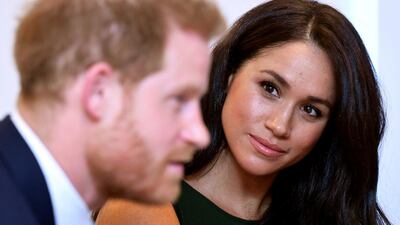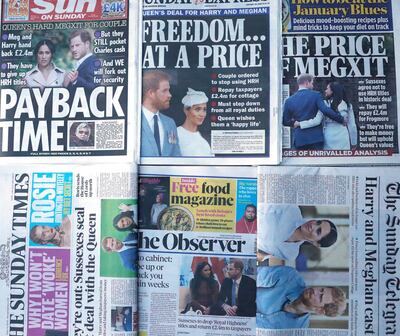Do they have to apply for permanent residency? What will they do to support themselves? Can they find a daycare at such short notice for baby Archie?
These and other mundane musings began forming in my mind when I heard that Prince Harry and Meghan Markle, the Duke and Duchess of Sussex, were going to spend some time in Canada while they transition away from full-time royal family members to a different kind of branded royalty, more akin to Oprah and the Obamas.
As an immigrant and a dad in Canada, my reaction was more prosaic than the breathless coverage out there. It takes about a year to get permanent residency here – will they get to jump the queue? How do you make money as a former prince and princess? Does it fall from the sky? We have been on a daycare waiting list in Montreal for a year and a half now. Is their neighbourhood in Vancouver better serviced? And as an avid Netflix subscriber who is on top of the latest season of The Crown, I wonder: how is the Queen handling all of this?
I have been following the news documenting the arrival of the former royals with a mix of curiosity, perplexity and a faint sense of embarrassment. The perplexity is due to two primary issues – first, it seems to me that everybody is making a big deal out of what is likely to be a temporary living arrangement in Canada before the couple moves on to more amenable celebrity climes over the southern border.
Second, the relationship between the royal family and Canada is transparently bizarre. As a member of the Commonwealth, the Queen is also the Canadian sovereign, and the Governors-General (her representatives in the country) do things like convene parliament or ask the party leaders to form a government on her behalf. Prior to their decision to forfeit their royal status last week, Harry and Meghan's arrival in the country was going to raise all kinds of novel questions on the practical matters and the point of Canada's idiosyncratic style of constitutional monarchy. Although these issues have been evaded for the moment, it does not change the fact that the sovereign's grandson and great-grandson will now be living among us, supposedly as ordinary people.
In the past few weeks, Canadians have seen their government bend over backwards just to appease the most antiquated and perhaps least relevant part of their system of governance. It is desperate to keep one foot in the modern era and another in a bygone one defined by ceremony and appearances. Come to think of it, I suppose that is also Harry and Meghan’s predicament.
My faint sense of embarrassment is because the coverage in Canada, though more respectful and humane than the dumpster fire that is the British tabloid press, has focused on the rather sensible question of the potential cost to taxpayers of providing necessary security to the couple. How much money will Canadians have to pay to ensure the safety of a rich celebrity duo, who probably do not even have a valid immigration status yet? (Though in a nod to everyday plebs, not even Prince Harry was immune to the regrettable need to fly to Canada this week on the low-cost airline Westjet).
I suppose the vague embarrassment stems from the fact that it feels a little like worrying about who will pay the taxi fare when your distant cousins come visiting from overseas. It all felt just a little unpleasant, a little unwelcoming. Though I am not quite sure why, it makes me feel a bit apologetic when I read the news, as though somehow I have something to do with the controversy. Perhaps it is an inevitable sign of acclimatising to Canadian culture that I feel the need to apologise for random facts of life.
There is, however, a faux-inspirational message to draw from all this, from the newfound independence of a royal couple who eschewed a decaying, anachronistic and pageant-like institution to a new life where they rely on their own resources and wits in their pursuit of purpose. Already, the preparations the couple undertook to build their Sussex royal brand in the run-up to the announcement that they will step back from royal duties offered an insta-filtered hint at an envisaged future of a carefully cultivated brand that amalgamates glitz, virtuous causes, social media influencing and 21-century capitalism. Sadly, that brand has been quashed by Buckingham Palace, so the couple will have to find an equally appealing alternative.
The inspirational message is that Harry and Meghan gave up a royalty premised on primogeniture so they can pursue a more rewarding one based on branded capitalism and philanthropy. Now you do not need to be born into royalty – perhaps you too can work your way up to the fairytale, one Instagram follower at a time.
Kareem Shaheen is a former Middle East correspondent based in Canada



